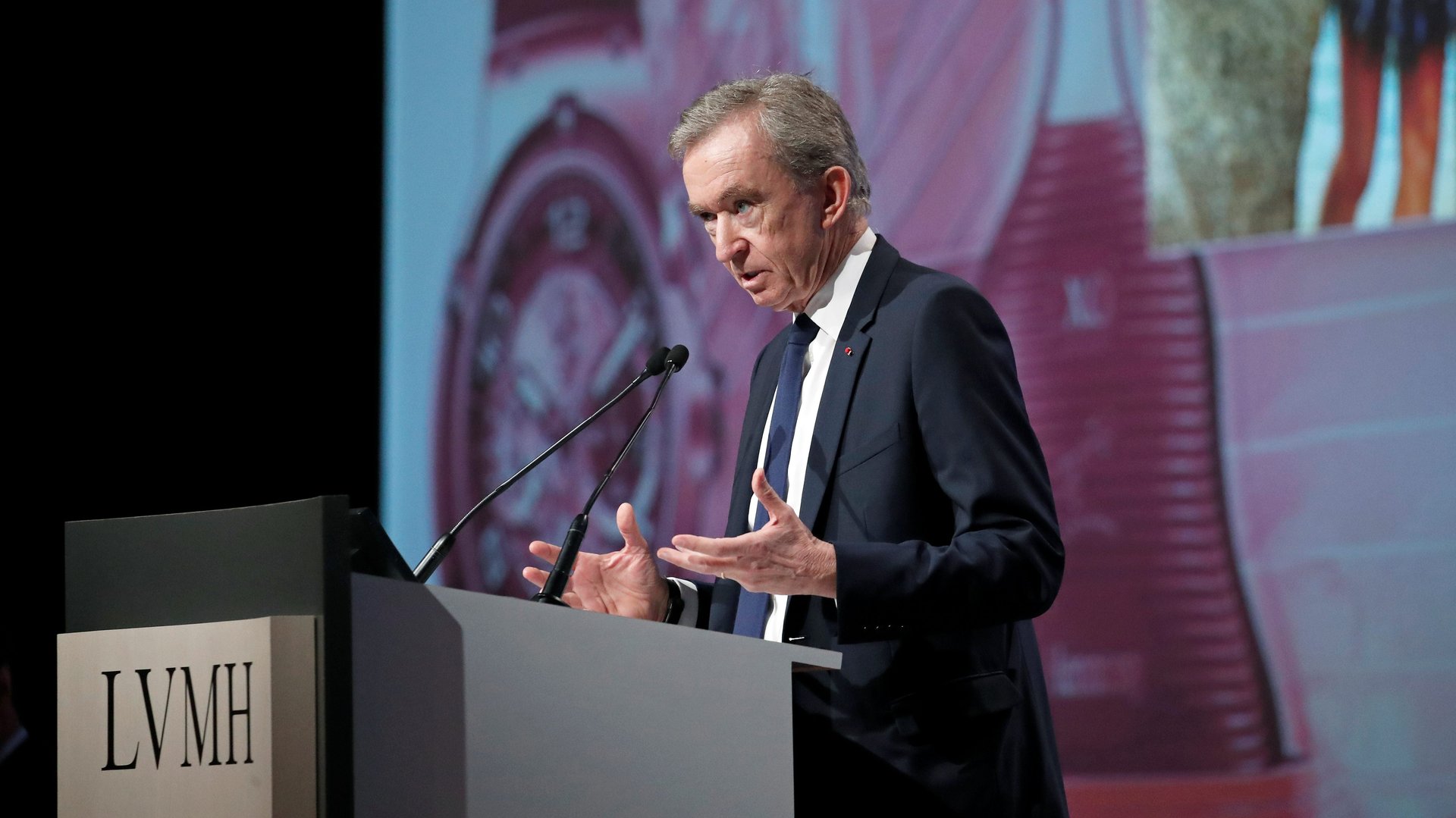France’s luxury titan criticized Greta Thunberg at a sustainability event
At an event touting the sustainability efforts of luxury giant LVMH, the group’s chairman and CEO, Bernard Arnault, criticized teenaged environmental activist Greta Thunberg.


At an event touting the sustainability efforts of luxury giant LVMH, the group’s chairman and CEO, Bernard Arnault, criticized teenaged environmental activist Greta Thunberg.
According to Business of Fashion (paywall), Arnault said she is “indulging in an absolute catastrophism about the evolution of the world.” He added: “I find it demoralizing.”
Bloomberg, which also reported from the event, noted that Arnault called the 16-year-old Thunberg a “dynamic young girl” but said her views are “demoralizing for young people.”
They might disagree with that assessment. Though she’s not its only leader, Thunberg has become the de facto face for a movement of millions of young people protesting insufficient action on climate change by world leaders and businesses.
Arnault’s comments came two days after Thunberg delivered an impassioned speech to the UN General Assembly condemning that inaction. One particular comment from her speech drew a response from Arnault. “We are at the beginning of a mass extinction and all you can talk about is money and fairy tales of endless economic growth,” Thunberg said. Noted environmentalist Bill McKibben lauded her for calling out the “fairytale of eternal economic growth.”
At the LVMH event, which included senior executives and employees at the company as well as press, Arnault responded, “If we don’t want to go backwards, we still need growth.” He pointed out that economic growth of the past decades had raised many out of poverty and improved health globally. He said he wanted to focus on what a business like LVMH could do to promote growth while also addressing the problems of climate change.
Arnault has an interest in promoting growth, of course. It’s the astounding growth of the luxury group he built, owner of brands such as Louis Vuitton, Fendi, Moët, Hennessy, and more, that recently propelled him to the status of second-richest person in the world.
That growth is also among the biggest sustainability challenges a business such as LVMH faces. To fuel it, LVMH needs to sell more products, while making them uses up resources and results in more greenhouse gas emissions. The company says it has made good progress on its targets to use more renewable energy and reduce carbon dioxide emissions by 25% across its operations. Though on climate action it still arguably trails its largest rival, French luxury group Kering. The owner of brands such as Gucci and Saint Laurent recently announced a commitment to reduce emissions 50% across its operations and its supply chain, where most of the environmental impact occurs, by 2025.
But Arnault does have a point about economic growth. It’s been instrumental in slashing extreme poverty around the world. As science writer Tom Chivers has pointed out, the UN Intergovernmental Panel on Climate Change (IPCC) itself predicts that in 2050 malnutrition will be less of a problem globally than it is today because of economic growth and technological improvements, even as climate change spurs food insecurity and fuels a host of other very serious problems. Poor nations are the ones most likely to suffer from the effects of global warming, but they’re also those that stand most to benefit from the improvements that economic growth brings.
Though how much the expanding fortunes of a French luxury group can play in assisting that growth is debatable, and climate change is itself likely to hamper the sort of growth Arnault wants to see more of.